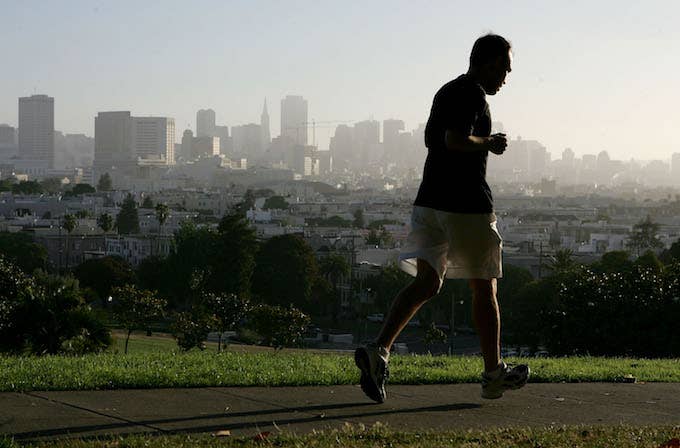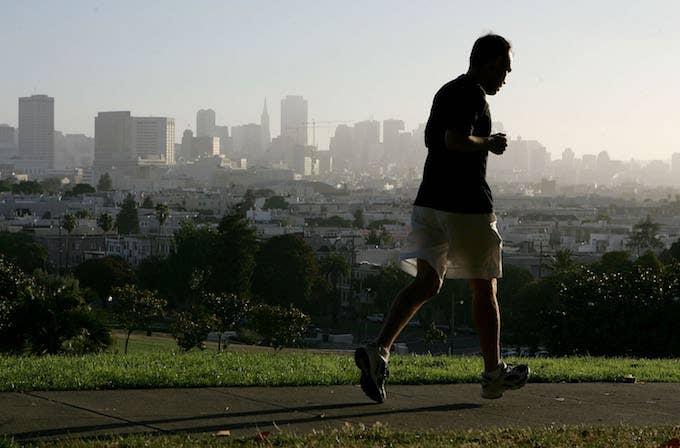
The Centers for Disease Control has released a new report on America’s exercise habits, and it’s not looking good.
The CDC conducted the research, which is based on four years of data, taken between 2015 and 2018. Across all 50 states, at least 15 percent of adults reported being physically inactive, ranging from 17.3 percent of people living in Colorado to 47.7 percent of people in Puerto Rico. In some parts of the country, almost 50 percent of adults said they don’t exercise.
The survey was done by telephone, where people were asked if they take part “in any physical activities or exercises such as running, calisthenics, golf, gardening, or walking for exercise” in the past month, aside from work responsibilities. The participants who said no were categorized as inactive.
At least 30 percent of people living in seven southern states—Alabama, Arkansas, Louisiana, Oklahoma, Tennessee, Mississippi, and Kentucky—and the U.S. territory of Guam also described themselves as inactive. Colorado, Washington, Oregon, Utah, and Washington D.C. were the only states where less than 20 percent were inactive.
The study only asked about people’s voluntary exercise habits and not jobs that involve physical labor. The CDC reports that around half of all Americans don’t get enough exercise, even if they are somewhat physically active during the workweek.
The exercise problem is worse for black and Latinx people, who, overall, reported higher rates of physical inactivity. “Too many adults are inactive, and they may not know how much it affects their health,” said Ruth Petersen, director of CDC’s Division of Nutrition, Physical Activity, and Obesity, in a statement by the CDC, per Gizmodo.
The recommended amount of exercise is 150 minutes of moderate-intensity activity per week, which has useful health benefits. “Being physically active helps you sleep better, feel better and reduce your risk of obesity, heart disease, type 2 diabetes, and some cancers,” Peterson said.

